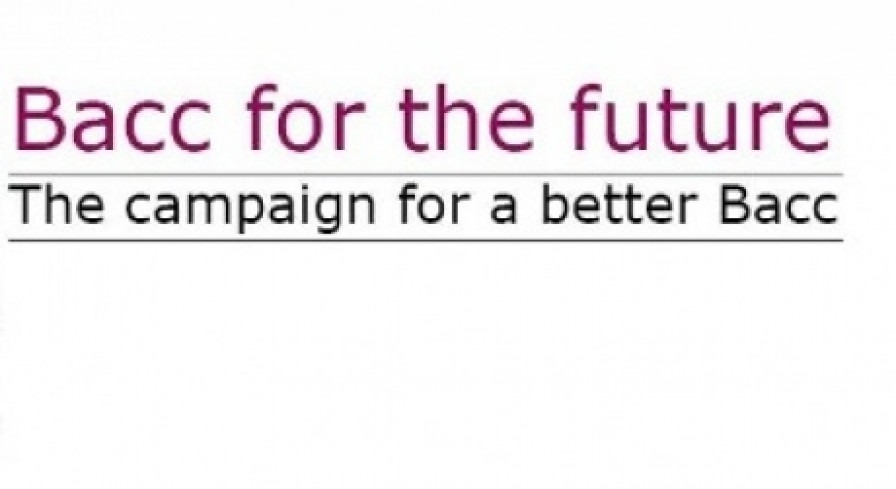Bacc for the Future: Will you support a campaign to keep arts and cultural education in schools?

Driving the arts, creativity and culture out of the curriculum at all levels, from pre-school to higher education, is increasingly becoming an issue that we need to pull together to overcome.
Earlier this week, I was sent some information on a cross-sector campaign which has been launched, aimed at persuading the government to add a sixth ‘creative and cultural’ pillar into the new proposed English Baccalaureate (EBacc) qualification. I have already signed it. You can find it here. http://www.baccforthefuture.com/sign-the-petition.html
Presently, the EBacc is linked to pupils obtaining higher grades in five areas -mathematics, English, science, the humanities (narrowly defined as geography or history) and foreign languages. Already there is evidence that the lack of creative and cultural subjects within the present EBacc is forcing the creative subjects out of the core curriculum in many schools. Worryingly, a new proposed examination system which replaces GCSE’s in these core subjects with a specific examination (still called the English Baccalaureate) looks set to exacerbate the problems of a narrow and constrictive curriculum even further.
Young people who want to include creative and cultural subjects in their formal education may not be able to do so in future. There is widespread support for the arts to remain in the curriculum – the chairman of the Education Select Committee describes the reform proposals as lacking “coherent thinking” and even Michael Gove himself has pointed out the value of music education. David Cameron described the UK as “the most enterprising, buccaneering, creative, dynamic nation on earth” and also pointed out that “to get our economy on the rise there’s a lot more to do”. Strange, then, that the creative subjects are completely missing from the proposed reformed qualification.
I am passionate about the value of arts in and through the curriculum and life, in order to provide meaningful, exciting and creative opportunities for all to participate, learn and develop. The impact of the arts goes far beyond the classroom walls and permeates our existence. As a teacher, trainer and musician in both formal and non-formal settings, the rate at which music education provision and also training places are disappearing greatly heightens my concerns that we are not setting ourselves up to provide education which will open up the opportunities available to young people and also potentially their opportunities to develop a lifelong love of arts and culture. Such fundamental changes to the system as those proposed will compound the impact upon other areas of music education, opportunities and learning at all levels. Think it through. Limited opportunity at Key Stage 4 inevitably means more restricted opportunities further up the education system. Limited opportunities at Key Stage 4 means that schools may focus their attention further down the school system towards subjects that will gain 'points' (vital for Ofsted) in the EBacc, thus spreading the issue further into earlier years. This is already happening. No music in school means no core entitlement to music and a lack of opportunity for all.
We are already fighting the tide on keeping the arts in primary and secondary schools in an Ofsted-driven society and a school system which, whilst apparently increasing school autonomy, appears to be diminishing the opportunities for arts in the curriculum. The creative sector currently contributes around 6% GDP, employs about 2 million people and exports over £16 billion annually. How can this possibly continue if our young people are denied of the opportunities to develop their creativity, knowledge, skills, understanding and to be excited by learning in and through the arts?
There is a public consultation on the EBacc which is currently taking place. If you want to add your voice to the concerns of the proposed new examination structure, I strongly urge you to consider signing the petition and getting involved in the campaign. More announcements about other aspects of the curriculum are due over the next few months; if we do not pull together now to tackle these one at a time, starting with the reforms to the examination system, we may soon be left wondering where it all went wrong.
Bacc for the Future http://www.baccforthefuture.com/
A twitter feed using the hashtag #baccforthefuture has also been set up.
Like any campaign, it relies on us to get the word around and gather support. I have already signed up. Will you?
